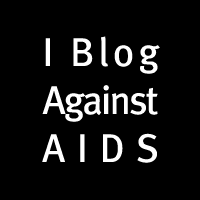Some good news in the new year?
Today Justin Gillis wrote that a Once-a-Day AIDS Pill Could Be Ready Soon in the Washington Post. This is, ofcourse, good news. Having to take only one pill a day means treatment regimens are easier to maintain, patients won't get as sick and drug resistant strains are less likely to develop. Though "[t]he pill won't be ideal for women of child-bearing age, since it may cause birth defects." The group most affected by HIV/AIDS worldwide, won't be able to use this new drug. The eternal cynic in me noticed this sentence:
"With nearly two dozen AIDS drugs on the market, with many more on the way, and with the patients taking them expecting to live out normal life spans, companies say devising convenient regimens has become a make-or-break problem."and it made me wonder: isn't this the perfect market for drug companies? I know it's been said before, but an ever-increasing population forced to maintain drug regimens for their entire natural life, it all seems too perfect. What incentive do pharmaceutical companies have to develop a cure for AIDS? No matter how hard we try to treat the rapidly multiplying numbers of people affected by HIV/AIDS in developing countries, until there is a cure the poorest will continue to have far higher HIV infection and AIDS mortality rates.
The Post also reports that the NIH Halts International AIDS Study testing whether breaks from anti-retroviral drugs had an effect on drug effectiveness. Unsurprisingly, the trial "showed that patients had twice the risk of dying or developing clinical AIDS if they took breaks from the drug cocktails, called highly active antiretroviral therapy." This has major implications for donor agencies funding treatment in developing countries. While there are now several programmes offering developing countries assistance for ART (anti-retroviral treatment) that are expected to increase their investment in the coming years, it is crucial that these programmes don't, as all too often happens, have their funding cut in future budgets. Pressure must be kept up to ensure that the Global Fund, the WHO's 3*5, and other AIDS treatment programmes are maintained as even short breaks in treatment can increase the development of drug resistant HIV strains, cause earlier AIDS onset and more illness for those with HIV/AIDS.








1 comment:
Very interesting blog about Tanzania. I am also running one but more related to the caribbean zone, about issues and policies touching human and social development. http://povandsocialdev.blogspot.com
Cheers -- -- Emmanuel
Post a Comment